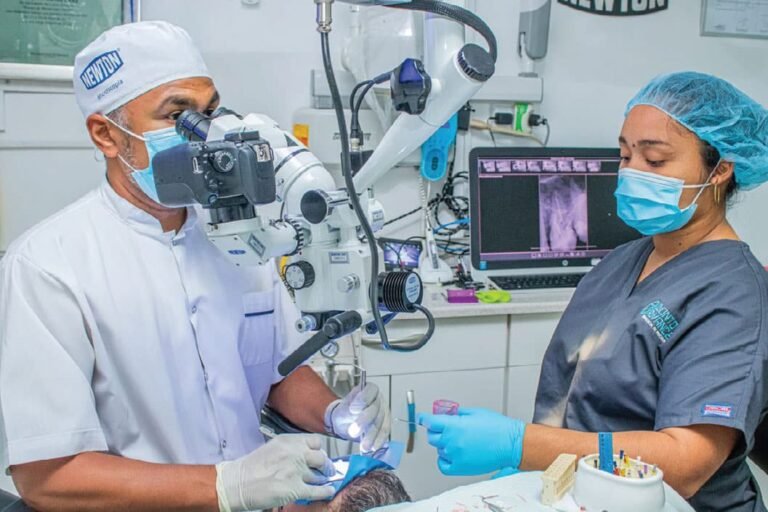How Lifestyle Modifications Complement Medical GERD Treatment
Gastroesophageal reflux disease affects millions of people worldwide, causing uncomfortable symptoms that significantly impact daily life and overall well-being. While medical treatments provide essential symptom control and prevent complications, they work most effectively when combined with targeted lifestyle modifications that address the root causes of acid reflux episodes. Many patients rely solely on medications without understanding how dietary choices, sleep habits, and other lifestyle factors contribute to their symptoms and treatment outcomes. Professional GERD acid reflux treatment in Cobb County emphasizes comprehensive approaches that integrate medical therapy with personalized lifestyle strategies for optimal symptom management. This holistic treatment philosophy recognizes that lasting GERD control requires both professional medical intervention and patient commitment to sustainable lifestyle changes. Understanding how lifestyle modifications enhance medical treatment helps patients achieve better symptom control while potentially reducing their dependence on medications over time.
Understanding the Role of Lifestyle in GERD Management
Lifestyle factors play a crucial role in GERD development and symptom severity, as daily habits directly influence lower esophageal sphincter function and acid production levels. Diet choices, meal timing, body weight, and sleep position all affect the frequency and intensity of reflux episodes that cause uncomfortable symptoms.
Medical treatments work by reducing acid production or strengthening the lower esophageal sphincter, but their effectiveness improves significantly when patients simultaneously address lifestyle triggers that contribute to reflux episodes throughout the day and night.
The synergistic relationship between medical therapy and lifestyle modifications creates optimal treatment outcomes that provide better symptom control while supporting long-term esophageal health and overall quality of life.
See also: How Local Bariatric SEO Connects Clinics With Nearby Patients
Dietary Modifications That Enhance Treatment Success
Strategic dietary changes complement medical GERD treatment by reducing acid production triggers and minimizing foods that relax the lower esophageal sphincter. Common trigger foods include citrus fruits, tomatoes, chocolate, caffeine, and spicy foods that increase acid production or weaken sphincter function.
Meal timing and portion control prove equally important, as large meals increase stomach pressure and promote reflux episodes. Eating smaller, more frequent meals reduces gastric distension while maintaining adequate nutrition throughout the day.
Understanding acid reflux vs GERD differences helps patients recognize when occasional heartburn becomes a chronic condition requiring comprehensive management that includes both medical treatment and dietary modifications.
Weight Management and Physical Positioning Strategies
Excess weight increases abdominal pressure that pushes stomach contents upward into the esophagus, making weight management a critical component of comprehensive GERD treatment that enhances medication effectiveness.
Even modest weight loss can significantly reduce reflux symptoms while improving the effectiveness of acid-suppressing medications and other medical treatments prescribed for GERD management.
Sleep position modifications, including elevating the head of the bed and avoiding lying down within three hours of eating, work synergistically with medical treatments to prevent nighttime reflux episodes that can cause sleep disruption.
Stress Management and Sleep Quality Improvement
Chronic stress increases acid production and affects digestive function, making stress management techniques valuable additions to medical GERD treatment plans that address both physical and psychological contributing factors.
Regular exercise, meditation, and other stress reduction activities can improve GERD symptoms while supporting overall digestive health and treatment compliance that leads to better long-term outcomes.
Sleep quality improvements become particularly important when considering the connection between GERD and sleep apnea, as both conditions can worsen each other, requiring comprehensive management approaches that address sleep disorders alongside GERD treatment.
Smoking Cessation and Alcohol Moderation
Tobacco use significantly weakens the lower esophageal sphincter while increasing acid production, making smoking cessation essential for patients seeking optimal GERD treatment outcomes through medical therapy combined with lifestyle changes.
Alcohol consumption relaxes the lower esophageal sphincter and increases stomach acid production, making moderation or elimination important lifestyle modifications that enhance the effectiveness of prescribed medications and other treatments.
Professional smoking cessation programs and alcohol counseling services provide structured support that helps patients successfully implement these challenging but crucial lifestyle changes for improved GERD management.
Creating Sustainable Long-Term Habits
Successful GERD management requires gradual implementation of lifestyle modifications that patients can maintain long-term rather than temporary changes that provide only short-term symptom relief before old habits return.
Working with healthcare professionals to develop personalized lifestyle modification plans ensures changes are realistic, achievable, and tailored to individual needs, preferences, and medical conditions that affect treatment success.
Regular monitoring and adjustment of both medical treatments and lifestyle modifications allow for optimization of symptom control while maintaining quality of life and treatment adherence over extended periods.
Conclusion
The most effective GERD treatment combines professional medical care with committed lifestyle modifications that address the underlying factors contributing to acid reflux symptoms. This comprehensive approach provides superior symptom control while potentially reducing medication dependence and supporting long-term esophageal health. Patients who embrace both medical treatment and lifestyle changes experience a better quality of life while building sustainable habits that promote digestive wellness for years to come.






